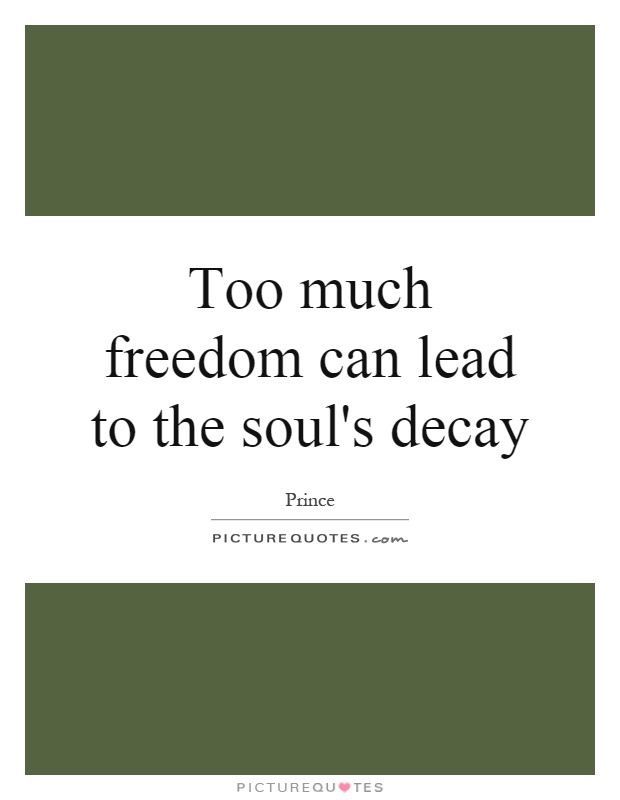Too much freedom can lead to the soul's decay

Too much freedom can lead to the soul's decay
In Niccolò Machiavelli's seminal work, "The Prince," the concept of freedom is a central theme that is explored in depth. Machiavelli argues that too much freedom can lead to the decay of the soul, as individuals become consumed by their own desires and lose sight of their responsibilities to the state. This idea is particularly relevant in the context of a ruler, as the decisions they make can have far-reaching consequences for their subjects.Machiavelli believed that a ruler must strike a balance between granting his subjects freedom and maintaining control over them. He argued that too much freedom can lead to chaos and disorder, as individuals pursue their own interests at the expense of the common good. In this sense, the decay of the soul refers to the moral degradation that can occur when individuals are given too much freedom and are not held accountable for their actions.
For Machiavelli, a ruler must be willing to make tough decisions and exercise authority in order to maintain order and stability within the state. This may involve limiting the freedom of his subjects in order to prevent them from acting in ways that are harmful to the state. While this may seem harsh, Machiavelli believed that it was necessary in order to ensure the long-term prosperity of the state.












 Friendship Quotes
Friendship Quotes Love Quotes
Love Quotes Life Quotes
Life Quotes Funny Quotes
Funny Quotes Motivational Quotes
Motivational Quotes Inspirational Quotes
Inspirational Quotes